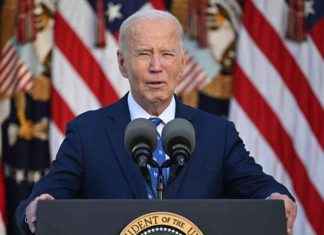EU chair names Trump among threats
BRUSSELS — Donald Trump has joined Russia, China and radical Islam as a threat to the European Union, EU leaders were told Tuesday by the man chairing a summit where they will debate relations with the United States.
European Council President Donald Tusk, a conservative former premier of Poland, wrote to EU national leaders to lay out themes for discussion when they meet Friday in Malta to discuss the future of their Union as Britain prepares to leave.
In vivid language that reflects deep concern in Europe at the new president's support for Brexit, as well as his ban on refugees and people from several Muslim countries, Tusk called on Europeans to rally against Euro-skeptic nationalists at home and take “spectacular steps” to deepen the continent's integration.
Saying the EU faced the biggest challenges of its 60-year history, Tusk named an “assertive China,” “Russia's aggressive policy” toward its neighbors and “radical Islam” fueling anarchy in the Middle East and Africa as key external threats. These, “as well as worrying declarations by the new American administration, all make our future highly unpredictable,” he said.
— Reuters
Sign up for one of our email newsletters.
Updated 17 hours ago
President Trump's top trade adviser said Germany was using a “grossly undervalued” euro to “exploit” its trading partners in Europe and the United States, comments that triggered a spike in the euro's value to a one-week high.
In comments to the Financial Times, Peter Navarro, the head of Trump's National Trade Council and an architect of many of the administration's trade policies, also declared a proposed trade agreement between the United States and Europe to be dead, citing Germany's currency as an impediment.
Trump's tough campaign rhetoric regarding trade has long fueled speculation of tensions with China and Mexico, countries that export large volumes of cheap goods to the United States. But Navarro's aggressive statements against Germany and the European Union appear to have taken markets and European leaders by surprise.
Navarro's comments appear to reflect a deep antipathy on the part of the Trump administration to multilateral trade deals and institutions, an attitude that has unsettled U.S. allies in Europe and around the globe in recent weeks.
On Jan. 23, his first full day in office, Trump declared his intention to withdraw from the Trans-Pacific Partnership, an Obama-era trade deal that Trump claimed would kill American manufacturing jobs. During the campaign, Trump also announced his intention to renegotiate the U.S. free trade deal with Canada and Mexico, and called the primary military alliance between Europe and the United States “obsolete.”
In his comments, Navarro cited Germany as a main obstacle to a proposed U.S.-EU trade deal called the Transatlantic Trade and Investment Partnership, or TTIP. “A big obstacle to viewing TTIP as a bilateral deal is Germany, which continues to exploit other countries in the EU as well as the U.S. with an ‘implicit Deutsche mark' that is grossly undervalued,” he said.
Angela Merkel responded Tuesday by saying that Germany does not influence the value of the euro and supports an independent European Betorder Central Bank.
Navarro's comments about TTIP appeared to stem from his preference for bilateral trade deals, which he, Trump and other advisers believe give the United States more leverage in trade negotiations.
“I personally view TTIP as a multilateral deal with many countries under one ‘roof,' ” said Navarro. “The German structural imbalance in trade with the rest of the EU and the U.S. underscores the economic heterogeneity within the EU — ergo, this is a multilateral deal in bilateral dress.”
The United States and other European countries have long criticized Germany for its trade deficit, though typically in subtler and more diplomatic tones.
Economists say that Germany's position as a strong exporter in a currency union made up of weaker economies has boosted Germany's exports and exacerbated its trade deficit. The shared euro effectively results in Germany having a weaker currency than it otherwise would, making its exports relatively cheap on the world market. Meanwhile, net importers like France, Greece and Portugal end up with a stronger currency.
That dynamic has fueled exports by German firms such as BMW and Siemens, and resulted in a German current account surplus that is larger even than China's in absolute terms.
“I think Navarro has a point, in that Germany has basically set up the rules in the euro area to suit itself, and if they hadn't been a euro area, the German currency, the Deutschemark, would be much stronger now, and that would hurt their exports,” said Joseph Gagnon, a senior fellow at the Peterson Institute for International Economics. “They have basically tied themselves down by the weak partners in the euro area. And they've forced Italy, Spain and Portugal to do massive fiscal austerity, and that caused big recessions which killed their imports.”
Our editors found this article on this site using Google and regenerated it for our readers.







